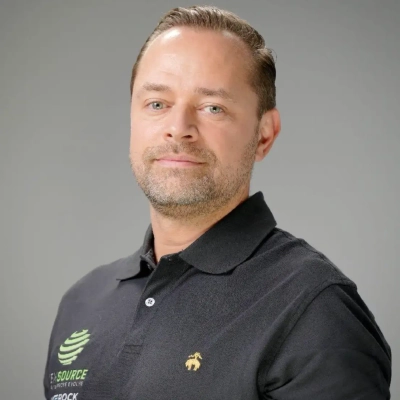Creating a respectful workplace is crucial for organizational success and employee well-being. This article presents actionable tips for leaders, drawing on insights from experts in the field. From fostering open dialogue to implementing structured recognition, these strategies offer practical ways to cultivate a culture of respect and inclusion.
- Create Diverse Perspective Panels for Decision-Making
- Prioritize Personal Check-Ins Over Anonymous Surveys
- Implement Structured Recognition for All Contributions
- Spotlight Overlooked Contributions in Team Meetings
- Foster Open Dialogue Through Monthly Sharing Sessions
- Establish Weekly Peer Recognition Practice
- Recognize Good Work On-Site, Regardless of Position
- Give Employees Visibility for Impactful Contributions
- Introduce Reverse Mentorship Across Generations
- Integrate Peer-to-Peer Reliability Badges into Workflow
- Conduct Inclusive Staff Meetings with Equal Voice
- Share Personal Stories of Impactful Work Monthly
- Tie Leadership Bonuses to Inclusion Outcomes
- Make Feedback Reciprocal After Every Project
Create Diverse Perspective Panels for Decision-Making
Promoting a workplace culture where employees feel valued and respected requires intentional actions that go beyond surface-level diversity initiatives to create genuine inclusion in decision-making and recognition processes. The key is ensuring that different perspectives aren’t just welcomed but actively sought out and incorporated into how the organization operates and evolves.
One specific action I would implement is creating “Perspective Panels” for major business decisions, where diverse employees from different levels, departments, backgrounds, and tenures are invited to provide input on company initiatives before they’re finalized. For example, when launching a new product, redesigning office space, or developing company policies, assemble a rotating panel that includes recent hires alongside veterans, employees from different cultural backgrounds, various age groups, and different job functions.
Give this panel real influence — not just the opportunity to voice opinions, but the power to suggest modifications that leadership commits to seriously considering and responding to with detailed explanations of what will or won’t be implemented and why. Document how employee feedback directly shaped final decisions and share these stories company-wide, highlighting specific individuals whose unique perspectives led to better outcomes.
This creates a culture where differences are seen as strategic assets rather than obstacles to manage, where employees at all levels know their voices can influence meaningful change, and where the value of diverse thinking is demonstrated through concrete business improvements rather than just stated in company values. The rotating nature ensures broad participation over time while the real decision-making authority signals that this isn’t performative inclusion but genuine respect for varied contributions.
 Brittney Simpson
Brittney Simpson
HR Consultant, Savvy HR Partner
Prioritize Personal Check-Ins Over Anonymous Surveys
One thing has been consistent after my years in recruiting: when people feel genuinely listened to and respected, they stay and thrive. In our company, I prioritize regular one-on-one check-ins over impersonal anonymous surveys. These aren’t tick-the-box meetings. They’re open, candid conversations where someone can point out a process that’s slowing them down, share a win that might have flown under the radar, or admit they’re close to burnout. More than once, a casual chat over coffee has led to a fix that improved the whole team’s workflow. When people see their feedback acted on quickly, they understand they’re shaping how we work.
Flexibility and growth go hand in hand with that. If someone needs to shift their hours to pick up their children or wants to step into a new type of project, we find a way. I’ve learned that when you trust people to manage their time and give them room to grow, they give back in commitment and quality. It’s something I remind our clients too: culture isn’t about the slogans on the wall; it’s about the hundreds of small decisions that show your team they truly belong.
 Ann Kuss
Ann Kuss
CEO, Outstaff Your Team
Implement Structured Recognition for All Contributions
At the heart of any great team is a simple truth: everyone wants to feel seen and heard. Creating a workplace where people feel genuinely valued, regardless of their background or role, is about more than just policies; it’s about intentional, everyday actions.
It begins with leadership fostering a culture of open communication, where they actively listen and show respect for every idea. It’s about creating an environment where fairness is a reality and diverse perspectives are truly celebrated as a strength. By doing this, you ensure opportunities for growth are accessible to all.
One specific action that makes a huge difference is implementing a structured recognition program that deliberately highlights contributions from all corners of the company. We make a point to celebrate not just the big, public wins, but also the quiet, essential work that happens in every department. Whether it’s an engineer solving a complex bug or an administrative professional streamlining a process, we ensure their achievement is shared and celebrated equally.
This isn’t just about saying “good job”; it’s about publicly affirming that every single person’s contribution is vital to our success. When you do that, you’re not just boosting morale — you’re sending a powerful message that every person matters. That’s how you build a culture of deep-seated respect.
 Hanna Koval
Hanna Koval
Global Talent Acquisition Specialist | Employment Specialist, Haldren
Spotlight Overlooked Contributions in Team Meetings
I make it a point to call out the good out loud and in public — especially when it comes from someone who thinks differently or works behind the scenes. Too many leaders only recognize the loudest voices or the people whose style matches their own. That kills culture.
One specific thing I do: in team meetings, I intentionally spotlight contributions that might otherwise be overlooked — whether it’s a quiet team member who solved a tough problem, or someone who raised a dissenting opinion that helped us avoid a bad decision. I’ll say something like, “Hey, what Sam brought up in yesterday’s discussion really shifted our thinking. That kind of courage and clarity is exactly what we need.”
It sends a message: we don’t just value results — we value how people contribute. That one small action builds safety, belonging, and respect across every difference.
 Pete Srodoski
Pete Srodoski
Business Coach, Roll With the Punches
Foster Open Dialogue Through Monthly Sharing Sessions
We have discovered that one of the most powerful ways we maintain a culture of respect is through continued, open dialogue. Every month, we invite a team member to share something about their background or personal life in an informal team setting. It’s not a formal presentation; it’s just a time to be heard as a person, not as an employee.
This practice began organically in the course of onboarding sessions and grew into something the team appreciated. In our latest internal survey, 87 percent of staff members said they felt closer to their colleagues due to these discussions. That feeling creates trust, and trust generates tighter collaboration.
We discovered that individuals contribute more meaningfully if they are seen. It’s not from big programs or from polished speeches. It’s about creating space for authenticity, listening without judgment, and fostering a culture in which individuals feel secure being themselves.
 Vasilii Kiselev
Vasilii Kiselev
CEO & Co-Founder, Legacy Online School
Establish Weekly Peer Recognition Practice
We run an initiative called “Peer Recognition Fridays.” Every Friday, each team member shares a brief note of appreciation for a colleague’s specific contribution that week. This could be about resolving a technical issue, mentoring someone, or simply making the workday more manageable.
This recognition is shared publicly within our internal channels and is not connected to formal reviews or bonuses. This approach ensures that the recognition feels genuine and is not tied to formal evaluations.
Two simple rules maintain its effectiveness:
1. Be specific — explain exactly what the person did.
2. Keep it open — recognize all types of contributions, not just project successes.
Over time, this practice has encouraged people to notice each other’s strengths, even across different teams. It also diminishes the sense of hierarchy, as everyone, regardless of role or background, can give and receive acknowledgment.
The process takes only a few minutes but has a significant impact on how valued people feel at work.
 Vikrant Bhalodia
Vikrant Bhalodia
Head of Marketing & People Ops, WeblineIndia
Recognize Good Work On-Site, Regardless of Position
In this trade, no one cares where you came from or what your background is. What matters is how you work — how you show up, how you problem-solve, and whether you’ve got the team’s back. That’s the culture I promote.
One specific thing I do to ensure everyone feels valued is this: I call out good work — on the spot, in front of the team. It doesn’t matter if you’re a first-year apprentice or a licensed veteran. If you handle a tough job, own your responsibilities, or step up for the team, I let everyone know. Praise isn’t just for show — it’s recognition tied to real action, and it sets the tone. Respect is earned on-site, not behind a desk.
We have people from different backgrounds, cultures, and age groups. The way I see it, electrical work is the great equalizer. Everyone starts at the bottom. Everyone gets judged the same way: by the quality of their work and how they carry themselves. I don’t tolerate ego or gatekeeping. If someone knows something, they teach it. If someone’s new, we train them properly.
The key? Keep your standards high and the playing field level. Make it clear that everyone’s here to win as a team. That’s how people start trusting each other. That’s how they feel respected. When a person knows their voice matters and their effort is seen, they’re going to take pride in what they do — and that shows up in the quality of the work. Every time.
 Alex Schepis
Alex Schepis
Electrician / CEO, Lightspeed Electrical
Give Employees Visibility for Impactful Contributions
In the past decade, I have observed that people, especially Generation Z, connect more deeply with their work when it advances both the company’s success and their own professional identity. This means I do more than recognize good work privately. I make it visible. If a team member develops a creative campaign or solves a complex technical problem, I give them the stage to present it in company meetings, feature it on our official channels, or highlight it as a case study at annual corporate events. This visibility also benefits them during the appraisal process.
This approach accomplishes three things. First, it builds confidence and a sense of ownership. Second, it shows employees that their contributions have real impact beyond a job description. Third, it makes them ambassadors for the brand, which is mutually beneficial.
It is not just about providing perks or policies. It is about embedding recognition into the fabric of how we operate, so that every person sees a path for their growth and feels that leadership is genuinely invested in their journey. When employees see that, respect and loyalty are a natural result.
 Sanjay Bhattacharya
Sanjay Bhattacharya
Head of Marketing & Business Strategy, Primotech
Introduce Reverse Mentorship Across Generations
Among the more potent yet unseen measures that I implemented was the introduction of reverse mentorship in the company. I did not apply the usual top-down mentorship model, but rather exposed older or more experienced employees to young or newly employed ones. This enabled new ideas to influence the trend of our culture, and everyone had a say irrespective of their level of experience. It helped in establishing a culture that allowed sharing of knowledge at all levels of the organization and induced generations to gain mutual respect, thus breaking the structured hierarchies that often exist in workplaces.
The result was an improved sense of teamwork and compassion. It also assisted in bringing out unseen talents and insights that might not have been revealed through normal top-down communication. We were able to create a culture of reciprocal respect. Not only does the top have to show respect to the bottom, but the bottom also respects the top.
 Gene Genin
Gene Genin
CEO, OEM Source
Integrate Peer-to-Peer Reliability Badges into Workflow
We make recognition part of the workflow, not an afterthought. In our programs, including our internship initiatives, every team member can issue “Reliability Badges” to peers when they follow through on a commitment.
These badges are tied to specific actions and visible to the whole team, ensuring recognition is objective, timely, and based on real contributions.
By making reliability visible, we help everyone — regardless of background or role — feel seen and appreciated for the value they bring.
 Alex Todd
Alex Todd
Founder and CEO, ReliablyME Inc.
Conduct Inclusive Staff Meetings with Equal Voice
I implement regular office staff meetings where every team member has the opportunity to voice challenges and contribute to our collective goals. These meetings create a forum where diverse perspectives are not only welcomed but actively sought out, ensuring everyone feels their input matters regardless of their position or background. By structuring these discussions to give each person equal speaking time, we’ve created a culture where different viewpoints are respected and valued as essential to our success. This practice has significantly strengthened our team cohesion while demonstrating that every contribution is meaningful to our organization.
 Kevin Alexander
Kevin Alexander
Founding Partner, Parker Alexander
Share Personal Stories of Impactful Work Monthly
Creating a culture where everyone feels valued starts with listening to people. In our healthcare company, we make it a habit to give employees a voice in decisions that affect their work. We do this through anonymous surveys, open forums, or private conversations to hear their thoughts or if they have any concerns that they want to voice. I strongly believe that when people see their ideas being heard and supported, they feel their contributions matter and are valued. It also shows respect, making them feel more motivated to work harder.
One particular action we take is recognizing achievements that highlight individual strengths. To strengthen this action, at our monthly team meetings, we share real stories about how someone’s work made a difference, whether it’s improving a patient’s experience or helping a team member solve a problem. This kind of acknowledgement is personal and genuine and reminds everyone that different skills make a team stronger and better.
 Blaz Korosec
Blaz Korosec
CEO, Medical Director Co.
Tie Leadership Bonuses to Inclusion Outcomes
I believe accountability starts at the top, which is why I’ve tied 30% of our leadership team’s bonus structure directly to diversity, equity, and inclusion outcomes. This approach ensures our executives are personally invested in creating a workplace where every employee feels valued and respected for their unique contributions. The results have been significant, with a 30% increase in diverse leadership and a 40% improvement in retention rates among employees from marginalized backgrounds. When leaders are financially accountable for inclusion, it transforms from a nice-to-have initiative into a business imperative that drives meaningful change throughout the organization.
 Xi He
Xi He
CEO, BoostVision
Make Feedback Reciprocal After Every Project
We make feedback a two-way street. After every project or sprint, the team rates us — not just the other way around. They provide input on what worked, what didn’t, and how they felt. It’s anonymous, but we take it seriously and act on it.
People feel seen when their input leads to real change. It also shows that no one’s voice is above others — everyone’s experience matters, not just the loudest in the room.
 Kristiyan Yankov
Kristiyan Yankov
Growth Marketer, Co-Founder, AboveApex

